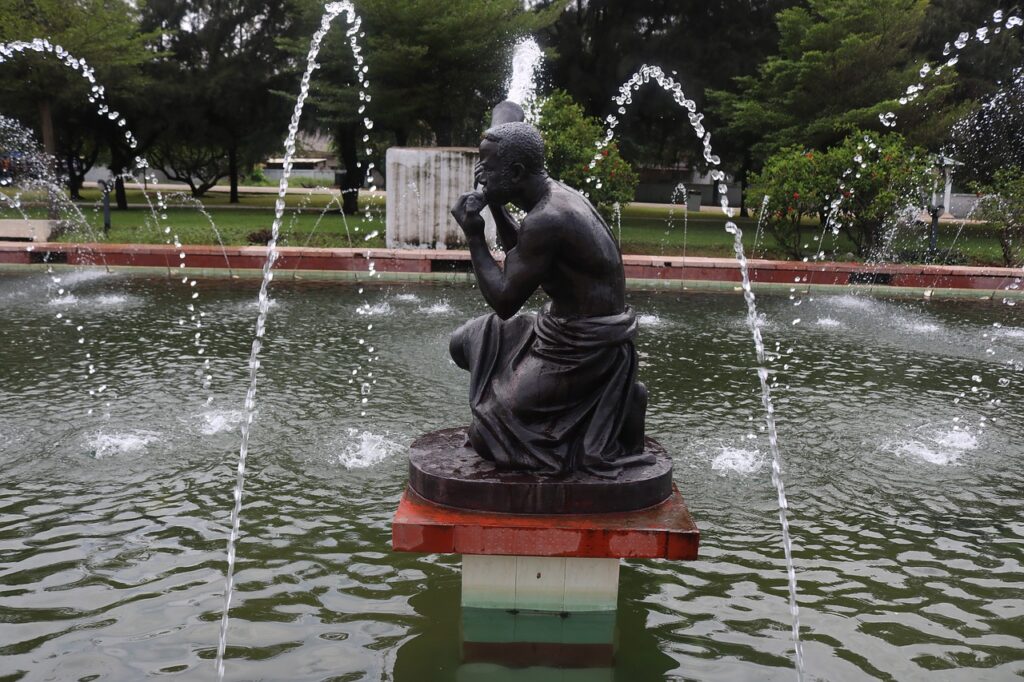We are blessed to be so connected worldwide; it makes these national borders laughable (will explain why in a later post). Furthermore, this power of the digital world has connected people of African descent all over the world–sparking stronger relations from powerful platforms so we can share our experiences. Multiple websites such as Africasacountry.com and Face2faceafrica.com have provided such platforms and shout out to them, man. They deserve immense praise. At this particular moment, I can hop on YouTube and type in whatever geographical region my heart desires and boom, I’m in Cancun enjoying the rest of the people dem. Shoot, if I’m annoyed enough, I can pack my bags and fly from the United States to New Zealand and get there in less than a day. We are blessed to be so connected worldwide; it makes these national borders laughable (will explain why in a later post).
Nonetheless, Africa is a huge continent and its diaspora in the Americas & Middle East is also large. We have different experiences and histories. As such, with such expansive freedom, we need boundaries like Asia and Europe (Asia doesn’t even have an “Asian Union” as Africa does). It will be much easier to focus on continental subsections and its respective diaspora worldwide. Black is just a color. It vehemently means something now because of poor opinions developed by the Arab World and Europe but we want to get to a place where we have a healthy relationship with being black. I love being black, but I am also Akan ni ba(child of Akan) as well as Ghanaian. In most of continental Africa, I am ethnic group first, clan second and lastly, maybe being black. In most of Africa (exceptions being South Africa and Arabized North Africa), being black rests in the unconscious space of the mind. In the West, it is not so, especially here in the States. I’m just black and then there is my city, town or “block” and the clashes between races. Different context, same color.
Almost every “black” nation (hell, all nations) were controlled by British, French and Iberian peoples. It’s a flimsy unifier though. The Jewish diaspora have been able to develop strong ties because of culture and most importantly, religion. It is not because of common opression(Holocaust being the exception) and color. There is more to us than just being black. Or being African. Falling into this trap blinds us from the potential we have on the continent because we won’t see important differences we could incorporate in our lives. It’s the bane of continental Africa today and yesterday. The continent is growing fast in terms of population and economy, and it needs to be strengthened with knowledge of history, so we don’t repeat the pitiful failings of our ancestors.
Pertaining to Atlantic Africa and its diaspora in the Americas specifically, the relationship has been very spotty at best and we don’t know a lot about each other. Ask the average black person in the United States about their African ancestry, they would know very little. Most people can’t even tell you five countries from the region, let alone ethnic groups. Flip it around to France, UK, China and India and people and they can at least tell you and people of all races can tell you of it somewhat. Individuals from these diasporas can even tell you their full ancestry from the continent. The holidays in North, Central and South America reflect that. People of clearly visible Atlantic African ancestry go as far to rebuke that part of their DNA. “I ain’t no African, I’m Hebrew!” or marveling at their Spaniard or Irish ancestry. No mention at all of their Igbo, Akan, Mbundu, Yoruba or Mandinka ancestry. It’s what happens when you feel like these places are “not winning” but this 21st century, that narrative shall change.
The years of 1501-1867(especially during the 1700’s) was the telling factor to the division we see now between Atlantic Africans and its diaspora. This, unfortunately, went hand in hand with globalization too. Plenty of pain but there’s gold behind the pain. Investment from individuals in the Americas as well as the Caribbean could create long lasting cashflow between the diaspora and allow for all people to flourish.
The population of Africa in general is tripling by 2050 with plenty of young people and the economy is growing exponentially. Kinshasa, DRC and Lagos, Nigeria are expected to be huge megacities, with the latter already being a leader in bitcoin trade currency. Let’s learn about ourselves, and the rich culture, stories and life that Atlantic African peoples have to offer. This, and much more, shall bridge the gap that was created for 300 challenging years.
